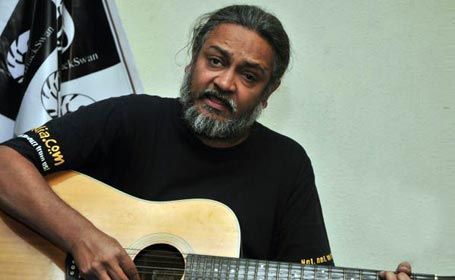
MUMBAI: Unlike their Bollywood counterparts, the country’s indie artists are unlikely to reap any benefit from the Copyright (Amendment) Act 2012 passed by Parliament.
The newly passed bill makes it mandatory for music companies and producers to share royalty with singers, lyricists and scriptwriters. The bill declares authors as owners of the copyright, which cannot be assigned to the producers as was the practice till now.
Unfortunately, for veteran singer Rahul Ram, the vocalist and bassist of India’s first fusion rock back, the struggle to make a living playing music will not lessen because of the Copyright Amendment Act.
It will now become mandatory for broadcasters - both radio and television - to pay royalty to the owners of the copyright each time a work of art is broadcast. It bans people from bringing out cover versions of any literary, dramatic or musical work for five years from the first recording of the original creation.
“We have to first ask: Which artist? In the West, it is clear what one is talking about- the writer. Here there is a blur between the writer and the composer. The Copyright Bill is for Bollywood artists and not for indie artists like us. It won’t make a difference to us,” Ram points out.
He said that since the market for indie artists was anyway so small, any royalties that percolate and reaches them would amount to peanuts. Doing the maths, Ram said that if a CD is priced at Rs 250, which includes the share of labels, distributors and taxes to be deducted an artist would be lucky to get Rs 20 per sale of a CD. To make it viable, the artist would have to sell at least 1,00,000 copies- an unimaginable feat in India and one that even Bollywood soundtracks rarely touch.
“Money in music is in the mobile downloads. Say we have the hit item song: ‘Fevicol’ and it is downloaded a million times at Rs 6 per download. We can assume that 50 percent goes to the telephone company, 25 percent to (say) Hungama, 25 percent to the copyright holder from where 12.5 percent will come to the composer/ writer. This may amount to Rs 1 lakh or so, hardly a big sum,” Ram said.
For artists, the money and means to earn a living off their music is through live performances. Instead of waiting for albums/ singles to sell and get monetized an artist can earn good income from live gigs. A band like Indian Ocean can command up to Rs 3 lakhs per show and top pop acts like Sonu Nigam rely more on tour than recording where they are paid around Rs 1 lakh only for a song.
“Companies and labels don’t want to give out figures because money from royalties is so dismal. It is only mobile downloads that are propping the figures. I have spoken to Javed Akhtar and told him, “You’re in Bollywood and you are right to fight for Copyrights.” But for bands like us it would not really make a difference,” Ram said.
Expanding the market is also not a solution feels Ram because; the area where growth would likely take place would be where low-quality free music is available- like YouTube.
“We gave our last album for free. When people ask us why: Our answer was the fact that the songs would anyway be pirated or illegally downloaded. By giving it for free, more people would enjoy it, and come to our shows- from where we earn our livelihood. The world is anyway coming towards live shows. In places like the US, people at concerts insist on buying our albums even if they have earlier downloaded it for free- they want to pay for good music. Here we expect everything to be free.”